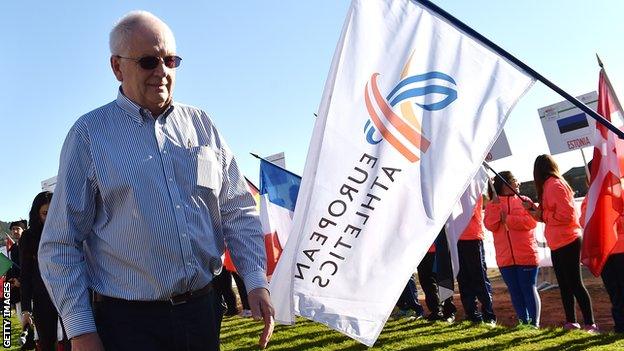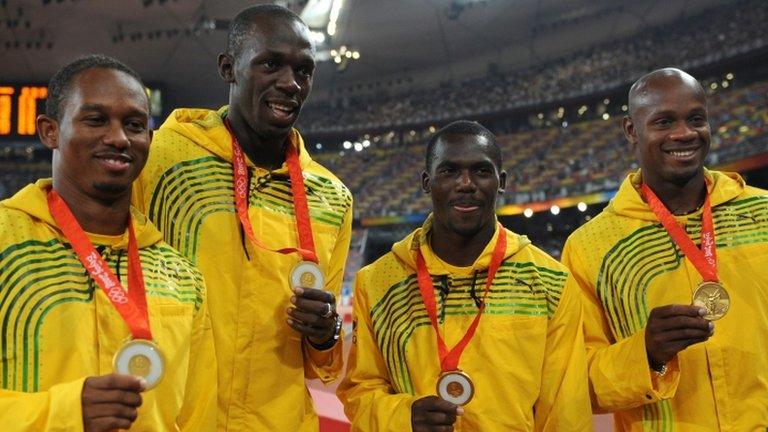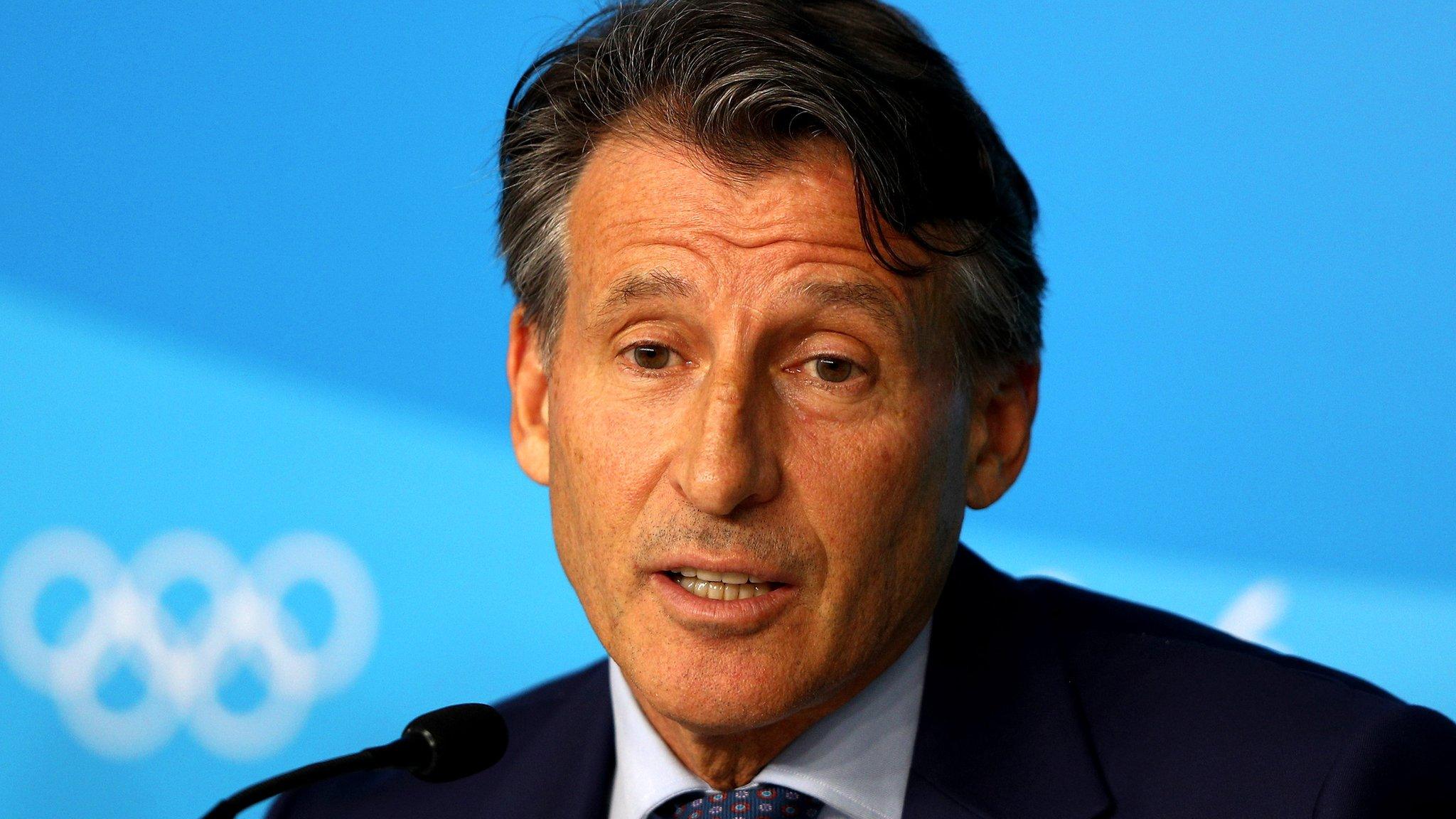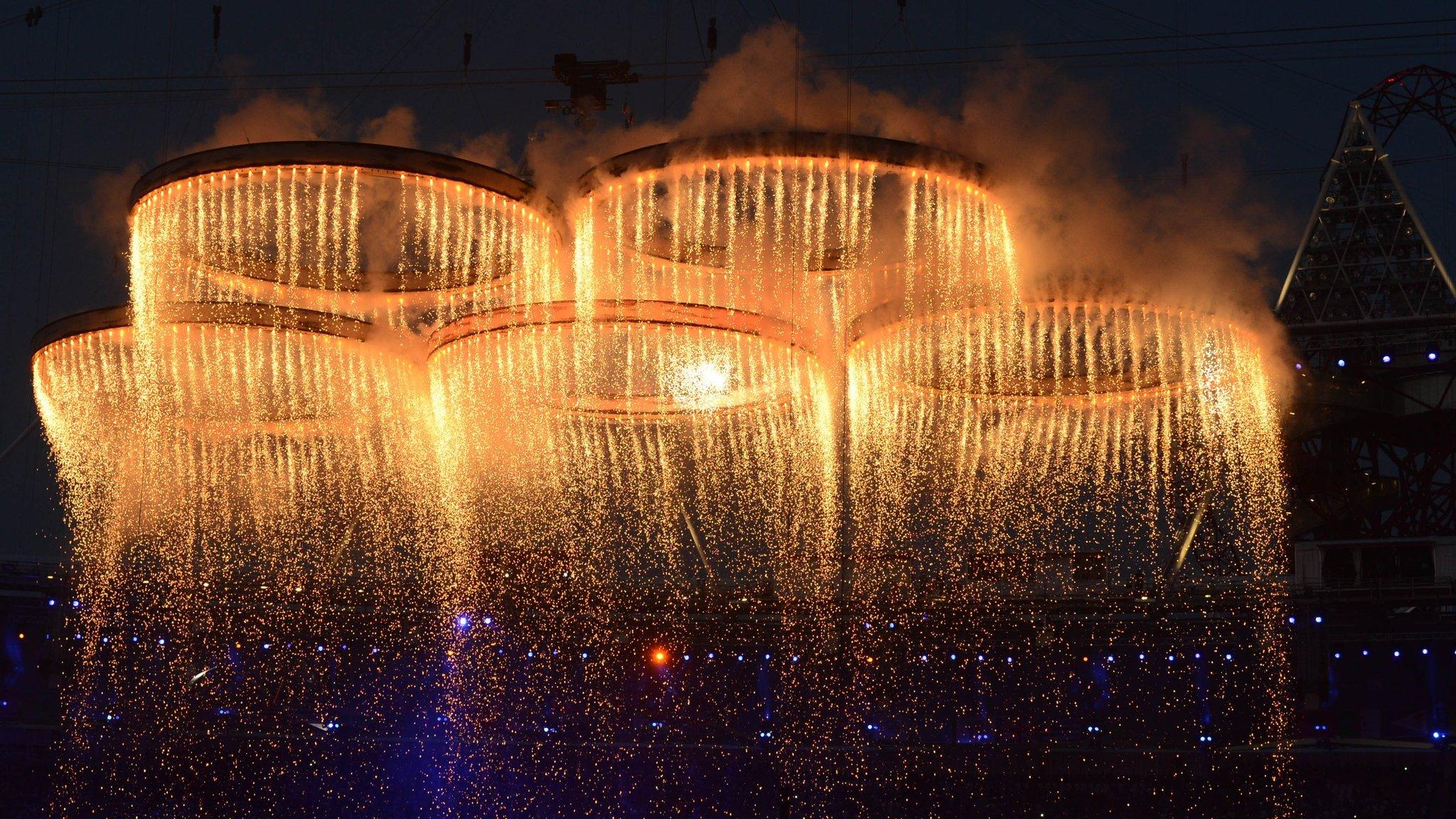Doping: European Athletics to examine credibility of all records
- Published

European Athletics president Svein Arne Hansen wants record holders to be "recognised as beyond question" by fellow athletes and fans
A task force has been set up to examine the credibility of records set in European athletics, in the wake of the sport's doping scandal.
Russian athletes are banned from competing because of state-sponsored doping, while Usain Bolt is to lose an Olympic gold medal after a relay team-mate tested positive for banned drugs.
European Athletics (EA) president Svein Arne Hansen has ordered the review.
All records should be "100% believable and credible", Hansen said.
"However, there is a view that this is currently not the case with some of the performances on the European Record list, and so I have ordered this review," he added.
"Claiming a European record - after being crowned European Champion - is the pinnacle of our sport in Europe. The holders of these records should be aspirational heroes whose performances are respected and recognised as beyond question by their fellow athletes and the fans of our sport."
The task force will report back its findings by September.
More than 1,000 Russians, across at least 30 sports, benefited from a state-sponsored doping programme between 2011 and 2015, according to the second part of the McLaren report, released in December after a World Anti-doping Agency (Wada) commission.
The EA website currently lists 15 European indoor and outdoor athletics records held by Russians.
Additional current records include those set in the 1980s by athletes from Soviet Bloc countries, including East Germany, which operated its own extensive doping programme.
Meanwhile, the International Olympic Committee is re-testing hundreds of samples taken at the 2008 and 2012 Olympic Games using up-to-date detection methods. So far it has sanctioned almost 100 athletes for using banned substances.
The latest include Jamaican sprinter Nesta Carter, who was part of a Jamaican quartet featuring Bolt that won the 4x100m relay in Beijing in 2008.
The IOC has ordered that Jamaica be stripped of its medal as a result.
Hansen said he had spoken about his review with Lord Coe, head of the IAAF, athletics' world governing body.
He added: "The IAAF will monitor this work closely before deciding on any actions at the world level."
- Published26 January 2017

- Published19 January 2017

- Published9 December 2016
